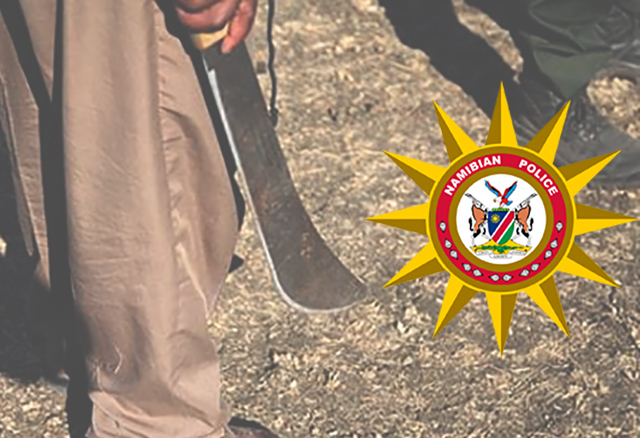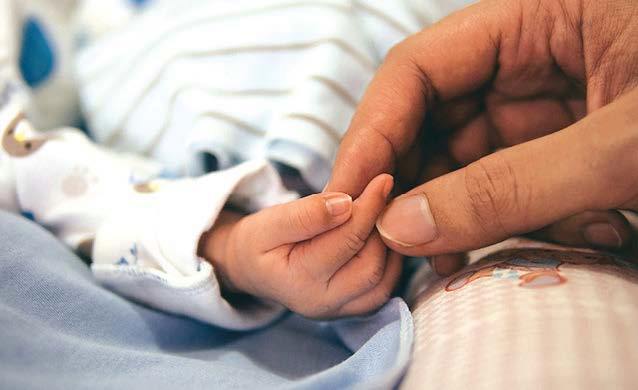WHEN our colleague Tom Masland stepped off the curb onto West End Avenue on the rainy night of October 24, he had his funky little black bag over his left shoulder and his sax in a case in his right hand, and his life was about to end.
He had just finished a gig at a Manhattan jazz club called Cleopatra’s Needle, and was on his way to another performance downtown. In his day job, he had been a foreign correspondent and an editor for Newsweek, occupations he had performed with such devotion and skill that many of us wouldn’t know until he died how much else there was to him.He had covered Africa the past six years, but was so modest that if it hadn’t been on the wires, we wouldn’t have known that he took three chunks of shrapnel while reporting on civil unrest on the streets of Monrovia.He yanked the biggest piece out of his arm, dressed it from his own first aid kit, and later said with his easy laugh, “It was the world’s cheapest Purple Heart.”We didn’t know that during his last two years he had become diabetic, learning to cope with the dietary and medical requirements of Type I latent diabetes on the road in places where finding a safe meal and a clean needle is hard enough for anyone.Transferred back to New York just in September, after assignments that had taken him through dozens of countries, he was so enthusiastic about his new job developing international stories and expanding music coverage for Newsweek’s Web site, that many of us didn’t realise he had also just fulfilled a life-long ambition to become a professional jazz musician.Tom was a child of the South, in ways that informed his professional and personal life.Born in North Carolina, he returned there after college for his first news job, on the Winston-Salem Sentinel.He would recall police there planting drugs on a black man who had protested a mechanic’s bill, and Ku Klux Klansmen attacking civil rights protestors.As a cub reporter he covered Stevie Wonder’s near-fatal car wreck, and would recall afterwards being “riveted” by Stevie’s comeback album ‘Songs in the Key of Life’.Music to Tom became entwined with the struggle for racial justice.”I’ve tried to expose wrongdoing and unconscionable human suffering,” he wrote once, privately, by “being an honest witness.”His jazz roots are older than his journalism ones.Dropping out of college in 1969, he went to Paris where he learned the sax jamming with French musicians like Francois Bréant, now a successful composer and arranger, but then returned to graduate from Haverford College.At the Philadelphia Inquirer, he was on a team that helped the paper win the Pulitzer Prize in 1980 for its coverage of Three Mile Island.In Philly, he also suffered his first on-the-job wound, investigating Warlocks motorcycle gang members who broke a bottle over his head and gave him a concussion.”It’s a good thing they were drinking cheap beer,” he joked from his hospital bed.In 1984, the paper sent him to Beirut, where he went as a newlywed with Chicago jazz singer Gina Lyden, just as Americans in Lebanon were being hunted as hostages.Then he moved to the Chicago Tribune, which sent him to Johannesburg, his first posting in Africa, and the beginning of another lifelong love, not least of all for the opportunity it gave him to explore the roots of American jazz.When Muddy Waters sang about the Hoochie-Coochie Man, Tom wrote in a recent essay on post-Katrina New Orleans, he was talking “about African religion in the New World”.Along the way he made friends the only way this gentle, soft-spoken man seemed to know how, for life.Bréant was one of many who received Tom’s late-night phone calls from the far corners, calls that invariably began with “What d’you know?”, asked in a voice often little more than a whisper, no longer with a drawl but still with the characteristic slowness of Southern speech.”He always stayed in touch, and it was very comforting to know I have a friend in Africa or Lebanon or New York or wherever, and I can drop by anytime,” Bréant said, after we reached him with the bad news.John Carroll, until recently the editor of the Los Angeles Times, grew up with Tom in Winston-Salem.”He was a collector of people, that’s why he became a journalist, he loved talking to people, he was one of those folks who kept up with you.”That’s another thing we discovered after Tom died, as the condolence calls poured in, just how many people he knew, many of whom didn’t know one another.There were mechanics (he had five jalopies in various states of restoration in at least three countries, sometimes to his wife’s dismay), and boat wranglers (he was an avid sailor on the Hudson River and the Chesapeake Bay, particularly in the leeboard ketch Meadowlark, which he helped his father and brother build), scientists and sculptors, venture capitalists and, of course, jazz musicians.Carroll remembers going once to Tom’s annual pig roast, long held on Daffodil Island at the mouth of the Sassafrass River on Maryland’s Eastern Shore, until the numbers grew too large for the tiny islet to accommodate.”There would be blue collar people and people whose books I had read,” he said.”Tom was at the nexus of diverse groups of people around the world.He collected friends and kept in touch with them, and kept them in touch with each other.”But if you asked Tom why the roast, he’d just say in his laconic way, “Pig beats all meat.I dig it.”Tom’s friend Rodney Kendrick, the jazz pianist, doesn’t find it at all strange, his twin passions for jazz and journalism.One recent night Tom came to hear Kendrick jamming with his wife, the singer Rhonda Ross.”He came there and we were doing our thing and Tom just said, ‘Man, it’s a party, the way it’s supposed to be’.”And he gave them that open-eyed look, with both eyebrows raised and a crooked smile, and Kendrick remembered the same smile later when Tom was telling him about sneaking into diamond mines in Africa to chronicle the harsh working conditions, and then “being chased for his life.”Kendrick laughed.”The way he was telling it, the same smile he had when he came to the gig, it was like a party, like it was supposed to be.”Kendrick doesn’t mean to trivialise it, though.”Tom was out there fighting for his ideals, any place, whether it was on the front lines over there, or in the underground of the jazz community, wherever the war was being waged.You dig? That’s what was so beautiful about him.”Lately Tom’s sax playing had improved to the point where he was getting paying gigs for the first time in his life, playing at Manhattan clubs several times a week.”This time he was really going for it,” Kendrick said.He called his eldest son Richard – as he did nearly every day, with each of his three boys – to tell him he was getting a copy framed of his first jazz paycheck, for US$400 from the Bubble Lounge.”He was really happy,” said Richard, a sophomore at the University of Southern California.”Happier than he’s been for a long time.”Then Tom stepped off that curb, and was hit by the offside mirror on a passing SUV; a freak collision on a rainy night that propelled him to the ground and caused massive brain damage.(“This is the greatest argument against intelligent design that I know of,” said Neil Benson, a friend from Tom’s days on Mole Street in Philadelphia).Thomas Wootton Masland died in intensive care at St.Luke’s Hospital three days later, on October 27, with his sons, Richard, Robert and James, his mother, brother and two sisters by his side, as Gina sang ‘When the Saints Go Marching In’.- NewsweekIn his day job, he had been a foreign correspondent and an editor for Newsweek, occupations he had performed with such devotion and skill that many of us wouldn’t know until he died how much else there was to him.He had covered Africa the past six years, but was so modest that if it hadn’t been on the wires, we wouldn’t have known that he took three chunks of shrapnel while reporting on civil unrest on the streets of Monrovia.He yanked the biggest piece out of his arm, dressed it from his own first aid kit, and later said with his easy laugh, “It was the world’s cheapest Purple Heart.”We didn’t know that during his last two years he had become diabetic, learning to cope with the dietary and medical requirements of Type I latent diabetes on the road in places where finding a safe meal and a clean needle is hard enough for anyone.Transferred back to New York just in September, after assignments that had taken him through dozens of countries, he was so enthusiastic about his new job developing international stories and expanding music coverage for Newsweek’s Web site, that many of us didn’t realise he had also just fulfilled a life-long ambition to become a professional jazz musician.Tom was a child of the South, in ways that informed his professional and personal life.Born in North Carolina, he returned there after college for his first news job, on the Winston-Salem Sentinel.He would recall police there planting drugs on a black man who had protested a mechanic’s bill, and Ku Klux Klansmen attacking civil rights protestors.As a cub reporter he covered Stevie Wonder’s near-fatal car wreck, and would recall afterwards being “riveted” by Stevie’s comeback album ‘Songs in the Key of Life’.Music to Tom became entwined with the struggle for racial justice.”I’ve tried to expose wrongdoing and unconscionable human suffering,” he wrote once, privately, by “being an honest witness.”His jazz roots are older than his journalism ones.Dropping out of college in 1969, he went to Paris where he learned the sax jamming with French musicians like Francois Bréant, now a successful composer and arranger, but then returned to graduate from Haverford College.At the Philadelphia Inquirer, he was on a team that helped the paper win the Pulitzer Prize in 1980 for its coverage of Three Mile Island.In Philly, he also suffered his first on-the-job wound, investigating Warlocks motorcycle gang members who broke a bottle over his head and gave him a concussion.”It’s a good thing they were drinking cheap beer,” he joked from his hospital bed.In 1984, the paper sent him to Beirut, where he went as a newlywed with Chicago jazz singer Gina Lyden, just as Americans in Lebanon were being hunted as hostages.Then he moved to the Chicago Tribune, which sent him to Johannesburg, his first posting in Africa, and the beginning of another lifelong love, not least of all for the opportunity it gave him to explore the roots of American jazz.When Muddy Waters sang about the Hoochie-Coochie Man, Tom wrote in a recent essay on post-Katrina New Orleans, he was talking “about African religion in the New World”.Along the way he made friends the only way this gentle, soft-spoken man seemed to know how, for life.Bréant was one of many who received Tom’s late-night phone calls from the far corners, calls that invariably began with “What d’you know?”, asked in a voice often little more than a whisper, no longer with a drawl but still with the characteristic slowness of Southern speech.”He always stayed in touch, and it was very comforting to know I have a friend in Africa or Lebanon or New York or wherever, and I can drop by anytime,” Bréant said, after we reached him with the bad news.John Carroll, until recently the editor of the Los Angeles Times, grew up with Tom in Winston-Salem.”He was a collector of people, that’s why he became a journalist, he loved talking to people, he was one of those folks who kept up with you.”That’s another thing we discovered after Tom died, as the condolence calls poured in, just how many people he knew, many of whom didn’t know one another.There were mechanics (he had five jalopies in various states of restoration in at least three countries, sometimes to his wife’s dismay), and boat wranglers (he was an avid sailor on the Hudson River and the Chesapeake Bay, particularly in the leeboard ketch Meadowlark, which he helped his father and brother build), scientists and sculptors, venture capitalists and, of course, jazz musicians.Carroll remembers going once to Tom’s annual pig roast, long held on Daffodil Island at the mouth of the Sassafrass River on Maryland’s Eastern Shore, until the numbers grew too large for the tiny islet to accommodate.”There would be blue collar people and people whose books I had read,” he said.”Tom was at the nexus of diverse groups of people around the world.He collected friends and kept in touch with them, and kept them in touch with each other.”But if you asked Tom why the roast, he’d just say in his laconic way, “Pig beats all meat.I dig it.”Tom’s friend Rodney Kendrick, the jazz pianist, doesn’t find it at all strange, his twin passions for jazz and journalism.One recent night Tom came to hear Kendrick jamming with his wife, the singer Rhonda Ross.”He came there and we were doing our thing and Tom just said, ‘Man, it’s a party, the way it’s supposed to be’.”And he gave them that open-eyed look, with both eyebrows raised and a crooked smile, and Kendrick remembered the same smile later when Tom was telling him about sneaking into diamond mines in Africa to chronicle the harsh working conditions, and then “being chased for his life.”Kendrick laughed.”The way he was telling it, the same smile he had when he came to the gig, it was like a party, like it was supposed to be.”Kendrick doesn’t mean to trivialise it, though.”Tom was out there fighting for his ideals, any place, whether it was on the front lines over there, or in the underground of the jazz community, wherever the war was being waged.You dig? That’s what was so beautiful about him.”Lately Tom’s sax playing had improved to the point where he was getting paying gigs for the first time in his life, playing at Manhattan clubs several times a week.”This time he was really going for it,” Kendrick said.He called his eldest son Richard – as he did nearly every day, with each of his three boys – to tell him he was getting a copy framed of his first jazz paycheck, for US$400 from the Bubble Lounge.”He was really happy,” said Richard, a sophomore at the University of Southern California.”Happier than he’s been for a long time.”Then Tom stepped off that curb, and was hit by the offside mirror on a passing SUV; a freak collision on a rainy night that propelled him to the ground and caused massive brain damage.(“This is the greatest argument against intelligent design that I know of,” said Neil Benson, a friend from Tom’s days on Mole Street in Philadelphia).Thomas Wootton Masland died in intensive care at St.Luke’s Hospital three days later, on October 27, with his sons, Richard, Robert and James, his mother, brother and two sisters by his side, as Gina sang ‘When the Saints Go Marching In’. – Newsweek
Stay informed with The Namibian – your source for credible journalism. Get in-depth reporting and opinions for
only N$85 a month. Invest in journalism, invest in democracy –
Subscribe Now!








